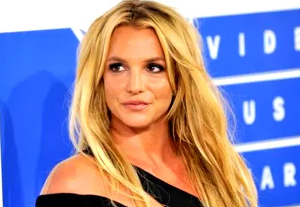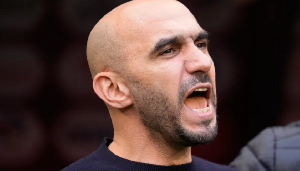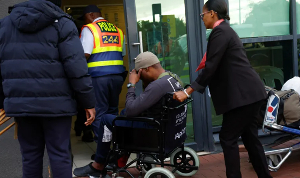I am glad to learn that the government has decided to officially authorize the establishment of an elite Police Special Forces (sometimes known as commando) unit to deal with possible future incidences of terrorism in the country. The government announced this in the news about two days ago. This is a measure that I recommended in an article I wrote about two and a half years ago after Kofi Awoonor was killed in Kenya during an Al-Shabbab raid at the Nairobi mall. Recently, with hotel attacks in Mali and also in Burkina Faso, the threat of terrorism hit much closer to home, so it is welcome news to hear that the government has finally decided to officially establish such an elite unit.
The goal of this article is to reiterate some points I made in the earlier article and also to highlight some new points that I think are important to the establishment of this Police Special Forces unit. As a citizen, I offer these opinions as contributions to the greater discussion of terrorism as a current global phenomenon that we in Ghana also have to be aware of, and to prepare for, and hopefully never have to grapple with in its rude form.
But before jumping into the discussion, why not ask ourselves whether or not such an elite Police unit is necessary at all? Why should we have to spend extra money to establish an expensive Police unit when we have so many other problems to deal with, such as children studying in “classrooms” without chairs and tables, problems meeting basic needs such as electricity, health and even supplying paychecks to sustain some government workers and their families? Why should we even be talking about elite Police units then?
Well I suppose the argument can go one way or the other. I happen to be on the side of the fence that argues that taking such measures as establishing a special Police unit to combat terrorism is a crucial part of taking measures to maintain our reputation on the global stage as a peaceful and stable nation. Many times I have heard on my travels to other countries people saying to me versions of “Oh Ghana…you don’t have a war going on there. You seem to be a peaceful and stable country.” I have heard versions of this over and over again. Of course such folk also often ask about the state of the economy, about education and about other issues. Ghana has become and still remains one of the most popular tourist destinations for foreigners (Asians, Westerners and others) interested in traveling to sub-Saharan Africa. Apart from tourism, many others want to do business and either seek or promote education in the country. It is in our interest to highly value our status as a peaceful and stable nation, and to be proactive in maintaining that status. Reputations take a long time to build but can be lost within a short amount of time.
Even more important than foreigners dealing with us is the need for our own people to be safe. I believe that setting up an elite Police unit to deal with the incidence of terrorism is one important proactive move that can be taken not only to maintain our reputation but also to ensure safety.
However, just having such an elite unit is by no means enough, in my opinion. The government must take measures to ensure that this unit is highly informed and integrated into an intelligence and public education apparatus that emphasizes prevention as the primary method of defense.
As such, the first point I want to reiterate is the importance of prevention. Prevention means having an effective and integrated intelligence gathering and sharing apparatus in the country to thwart terrorist threats. This means integrating and coordinating Police, BNI, Customs and Border officials, Military and Foreign intelligence efforts and operations. Over and over again, we hear examples of terrorist acts succeeding because of the lack of coordinated and shared intelligence efforts. The terrorist acts on September 11, 2001 in America featured a lack of well-coordinated intelligence sharing among American groups that deal with intelligence (i.e. FBI, NSA etc.) More recently, the Friday the 13th terror attacks in Paris also featured less than optimal intelligence sharing efforts among European nations. So integration of intelligence gathering operations is something the Ghanaian government will have to focus on, if it is not already doing so.
Prevention also means having public education programs in place to educate people about what to do if they suspect something terrorism-related or come to know crucial information that can thwart a terrorist act. As I suggested in the earlier article a couple of years ago, I believe that conducting media campaigns can go a long way to informing people about for instance which phone numbers to call or which location to go to in order to deliver key information to authorities. As the old adage goes, “prevention IS better than cure.” In the case of prevention of terrorist acts, I believe this cliché is true and applies appropriately.
And yet, despite the best efforts and best intentions of the government, some ideological extremist battle-hardened militants bent on wreaking maximum chaos, destruction and fear for mass publicity (i.e. terrorists) might still slip through the net to get into a position where they can cause havoc in our country. This is when it will be necessary to have a crack Police commando unit ready to take them on. The kind of elite Police commando unit we are talking about here is meant for dealing with terrorists victimizing civilians within a nation. Where prevention fails, “a cure” must be applied. The cure, in this case, will be drawing on the services of a highly trained, highly capable, physically strong, intelligent, mentally and psychologically stable and highly motivated and professional elite Police task force to take on these terrorists. “Establishing the cure” is the second point I want to reiterate. These elite Police must necessarily be militarized be capable of rapid response urban warfare skills to succeed in their work. These guys will be fighting battle-hardened terrorists, not armed robbers or even gangsters. The special Police unit will be dealing with an extremist with military training and experience.
As such, world class training with world class resources is paramount for the training of the elite Police unit. Otherwise in my opinion there is little to no point establishing such a group. Without such training and resources, an ill-trained and ill-equipped group will potentially just make things worse. A comprehensive and very difficult training regime (hard to get in and hard to stay in) must be implement. It must be hard to succeed in the program and hard to stay in it, because of the high standards required. Instituting world class training and using world class resources requires having international partners.
Thus the third point I want to reiterate is the importance of consulting with international partners as we establish our own training program for the elite Police unit in Ghana. Consulting with a number of our African sister nations like Cameroon, Nigeria and Tunisia that have had to deal with terrorist groups such as Al-Qaeda in the Maghreb (AQIM), Al-Shabbab or Boko Harram could also prove to be very important. Also consulting with partners outside of African can be important. Of these the French have recently dealt with terrorists in Paris. The French have also worked with African nations such as Mali to fight AQIM. The French have a number of counter-terrorist groups (GIGN, GIPN, RAID) that are organized at regional and national levels. The Americans also have a similar system: the FBI hostage rescue team at the national level but also SWAT teams at the US regional level. There are several other Western nations that have versions of counter-terrorism units.
And that brings up a point I seek to highlight. I hope the government will also consider talking not only to Western partners but also to new partners such as Iran, who have been actively coordinating a fight against Al-Qaeda and ISIS in Syria and Iraq. I say this because I think it is important for the elite Police force to understand the psychology of extremist Islamic ideology also from Islamic people. Yes, they can talk to African security personnel who practice Islam, but I am also talking about the global stage here. In that regard, consulting with specialist officers of the Iranian Revolutionary Guards Corps (IRGC) could prove both interesting and useful. Western partners might not like me saying this. Maybe some Ghanaians might not like this suggestion either. The world has however witnessed the effectiveness of IRGC leadership in the fight against Al-Qaeda (in fact, Al-Nusra Front, which is allied with Al-Qaeda). Under the leadership of Major General Qasem Souleimani of Iran (leader of the Quds force of the IRGC), the war against Al-Qaeda/Al-Nusra and ISIS was turned around in Iraq and in Syria. This same guy was allegedly responsible for putting together a crack team of Special Forces personnel that went deep behind enemy lines to rescue the lone survivor of the Russian aircraft that was shot down last November. President Mahama was recently in Iran and was told that Ghana should strive to remain an independent nation. So, in the spirit of being independent and at the possible risk of upsetting western partners, why not also extend a hand also to Soulemani’s people or the domestic IRGC for consultations? It could be an option. If Ghana selects to consult with American, French or other Westerner partners about setting up an elite Police unit to deal with Islamist extremism, why not also consider consulting with countries like Iran, who are also actually leading a major fight on the ground against these extremists that hide bombs in Qur’ans (Daesh/ISIS did this), eat flesh of dead soldiers (an Al-Nusra operative did this), chop off heads, and hands and kill their own family relatives? Needless to say, this latter issue is debatable.
I would like to urge the government to keep this expensive and elite Police unit highly professional and to have them called in only when needed to fight terrorism. Under no circumstance should such a highly trained group be abused for political gain, such as to oppress political opponents (e.g. having them serve as ‘riot Police’ – in that case, just get a riot Police unit) or to engage in acts for political gain. That should be unacceptable. Also, under no circumstance should such a group fall prey to tribalism or even nepotism. Again, if the government is going to put together such a team, then they should do it properly and with high standards. Pick the best, brightest, most capable, most motivated and most professional guys to get this elite/specialized training. Spend national resources to train them, and then deploy them only under the most necessary conditions.
I would like to end by suggesting that it would be great to give the group a fitting name, maybe something functional, such as “Ghana Rapid Intervention Police” (GRIP) or “Rapid Intervention Police” (RIP) or simply “The Eagle Squad”? Our coat of arms has two eagles. The eagle is part of our National symbol for freedom and justice but it can also be for protection.
Opinions of Monday, 7 March 2016
Columnist: Amponsah, John
Police special forces and Ghana’s reputation as a stable nation
Entertainment













